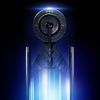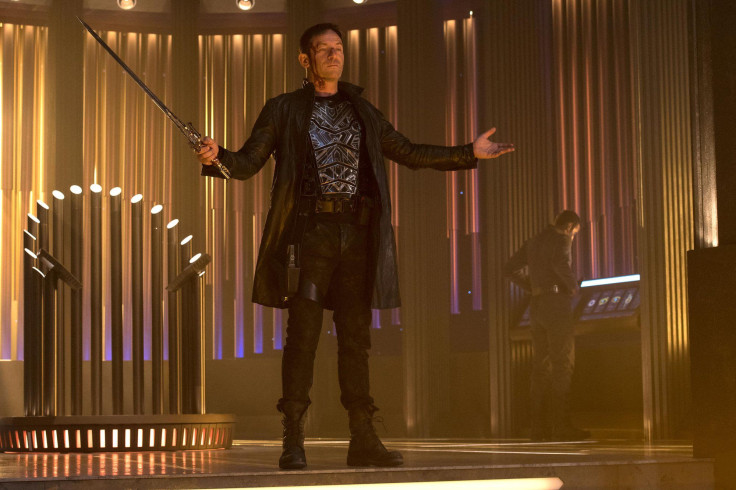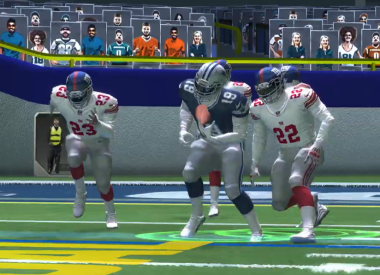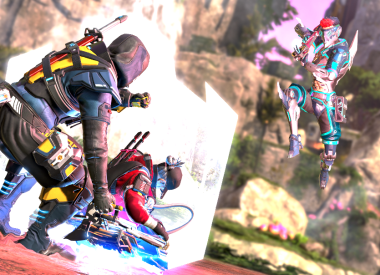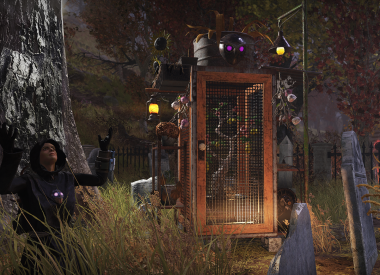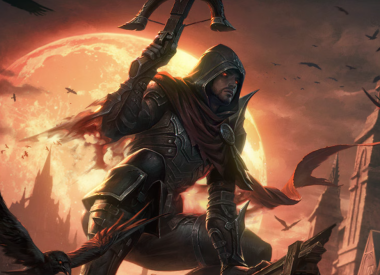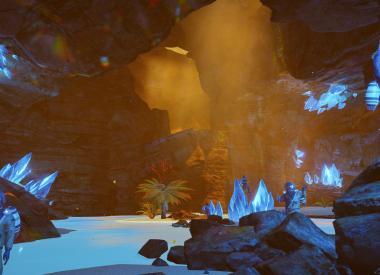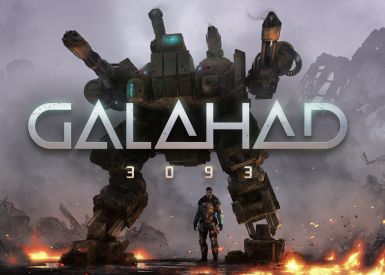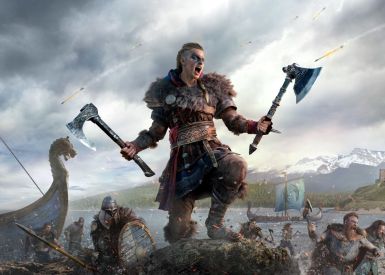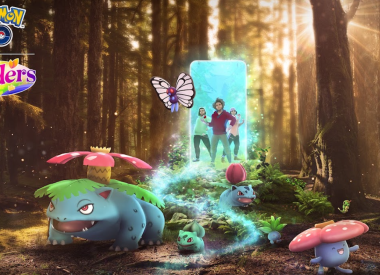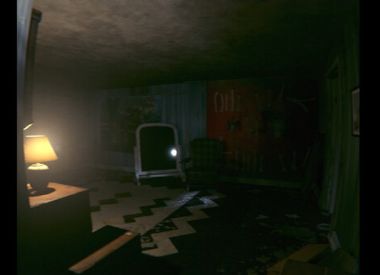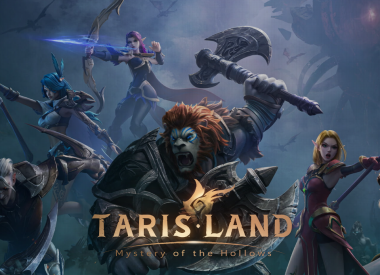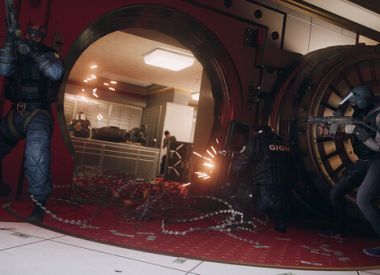As far as stock Star Trek tropes go, the power-mad officer is probably second only to the childlike, all-powerful being. If life aboard the Enterprise is a model for a better society, the mad admiral or captain is the dictator who brings disruption and autocracy, temporarily returning a well-ordered society to its former barbarism. There's the suicidal and honor-crazed death drive of Commodore Matt Decker in The Original Series episode, “The Doomsday Machine.” Admiral Satie holds kangaroo court on The Next Generation and Admiral Dougherty wields Starfleet power for imperial ambition in Nemesis.
This particular strain of antagonist has always nested awkwardly inside the United Federation of Planets — how can a society freed of poverty and prejudice have so many dangerous people occupying the upper echelons of bureaucracy? Often, a crazed officer pulling rank felt like a cheat. Rather than having familiar characters suffer from ambition, hubris, trauma or just poor judgment, Star Trek would punt to a one-episode human widget; a bad part to be torn free and replaced, restoring full working order at once and in time for the next episode. Which is what made Captain Gabriel Lorca (Jason Isaacs) such a fascinating character: he’s the power-mad Star Trek officer, but his corruption works slowly and deliberately. If previous one-off admirals were feverish infections, Lorca is cancer. That is, until “What’s Past Is Prologue,” episode 13 of Star Trek: Discovery’s first season.
The question of why Michael Burnham (Sonequa Martin-Green) and the Discovery crew have been stuck in the Mirror Universe — a violent, parallel slice of reality where humans advance by violence and the galaxy is ruled by the xenophobic Terran Empire — was answered at the end of the previous episode, “Vaulting Ambition.” Captain Lorca brought them here intentionally, because he hailed from the Mirror Universe and used the Discovery to get home and continue his assault on the throne of Emperor Philippa Georgiou Augustus Iaponius Centarius. In “What’s Past Is Prologue,” Lorca gets what he has wanted all along, at least for a few minutes.
There were warning signs. Lorca slept with a phaser under his pillow, regularly pushed subordinates to ignore regulations and briefly operated his starship via torture drive. “It’s war” remains, in the 2250s, a powerful excuse to convince people to surrender their values (and it’s never temporarily). Until Lorca was revealed to be from the Mirror Universe, Lorca looked like a man war had pushed too far, who had abandoned any principle except winning. The authority and loyalty he commanded corrupted Saru, Stamets, Burnham and everyone else who followed him. How far would they let Lorca bend them? When would they assert Starfleet values and confront their captain?
“What’s Past Is Prologue” denies them that confrontation, replacing it with a very different one. Instead of standing up to a captain and the Starfleet command structure, Burnham rebels against a warlord from another universe, who has turned from cooly calculating to maniacal. Lorca’s plan would result in the destruction of all life in the multiverse, like Darkseid. Discovery abandons the ambiguity of its themes for an action-packed ending. “What’s Past Is Prologue” retroactively coarsens the episodes before it by exposing Lorca’s plans as hard, unyielding plot machinery, instead of human complexity.
It’s not unexciting. Isaacs always had a menacing, winking swagger, so it’s fun to see him embrace it fully as he kills off the Emperor’s guard and takes over the I.S.S. Charon deck by deck. Some of the gunfights are clever, though all the evaporating Terrans become tedious. A final fight sequence starring Michelle Yeoh, a living legend of martial arts movies, is the kind of treat I would have never anticipated from a Star Trek series. While “What’s Past Is Prologue” isn’t setting any new standards in TV action, it’s some of the most ambitious in Trek history, at least in line with wartime episodes of Deep Space Nine. But it’s disappointing to see all of Lorca’s machinations and Discovery’s struggles total up to a bland movie climax.
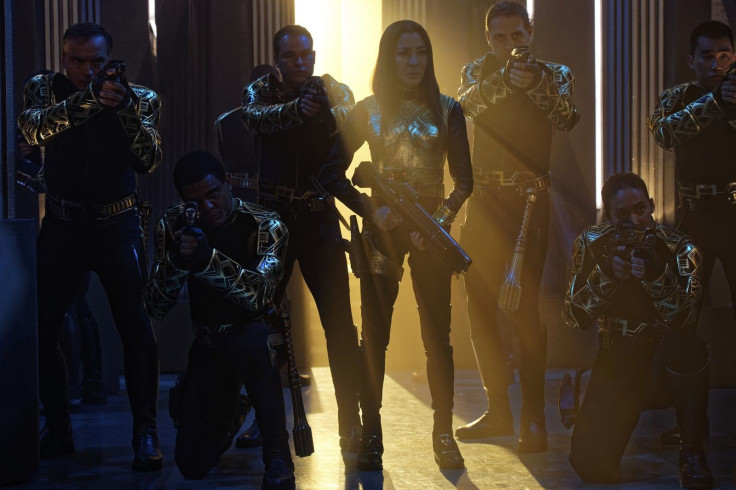
What goes on aboard the Discovery, meanwhile, may be rushed, but better fits the crunchtime problem solving that’s always been one of Star Trek: Discovery’s strengths. After enacting a technobabble-laden plan (it all amounts to video game logic: shoot the glowing weak spot), the Discovery is sent back on its way to their original universe. As Stamets surfs the ship on a mycelial shockwave, Discovery offers up its take on a sci-fi staple: the mindbending psychedelia of infinite time and space. Instead of Bowman traversing the monolith, we have Stamets roaring through the mycelial network, cored out from the universe like silkworm tunnels. It’s a little perfunctory and insufficiently hallucinogenic, but I’ll take it.
It’s not that “What’s Past Is Prologue” is a bad episode, because Q knows there have been many worse, but it’s a bummer watching Discovery hollow itself out for the sake of an action-packed climax. Sure, Lorca’s origins in the Mirror Universe made for a hell of a cliffhanger, but it’s a twist that makes it easier for the characters to face the reckoning that’s been barrelling their way all season. Burnham followed Lorca until he made it obvious that he stood for the opposite of everything Starfleet represents (right down to a knockoff of T’Kuvma’s ethnocentric stump speeches). It’s easy to stand up to your opposite, less so to reckon with the slow-working evil of mission creep and militarism.
- Richly redesigned Klingons
- Complex and explicable motives
- Great new Starfleet characters
- Incredible production design
- Generic space combat and action
- Too many flashbacks
- Eschews subtext, doesn't put enough faith in the audience

